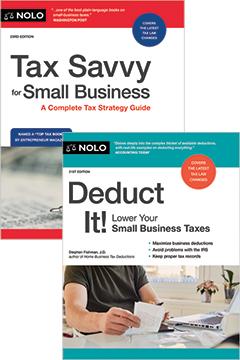Customer testimonials are a powerful marketing tool for your small business but there are some things you need to know.
Customer testimonials are a powerful marketing tool for your small business. More than 90% of people trust a recommendation from a friend and 70% trust recommendations made by strangers.
Recommendations come in many forms, including word of mouth, reviews, and product endorsements. You can also create social proof for your business by publishing customer testimonials. But before you add testimonials to your marketing campaign, there are some things you need to know.
What are Customer Testimonials?
Customer testimonials are statements made by actual customers that affirm the value of a product or service. They're usually made voluntarily by satisfied customers, often without compensation. When celebrities, spokespersons, or influencers endorse a product they receive payment.
The best client testimonials are brief, direct, and authentic. They include quotes or personal anecdotes describing the benefits of a product or service.
Why Use Client Testimonials?
Customer testimonials are great for your business. They build trust, create goodwill, and establish a positive brand identity. When combined with targeted advertising and good sales copy, testimonial ads are effective at generating sales.
Given a choice between two similar products, customers will usually select the one with the most positive reviews. Client testimonials provide reassurance that people are making the right choice. The more positive reviews your business has, the more you can influence buying decisions. Testimonial marketing helps turn leads into paying customers.
What Rules Govern Testimonial Advertising?
Client testimonials are subject to truth in advertising rules. The rules are described in the Guides Concerning the Use of Endorsements and Testimonials in Advertising prepared by the Federal Trade Commission (FTC). All testimonial ads must be truthful and not misleading. The FTC requires transparency when using reviews and endorsements in your marketing.
Disclose Special Relationships
An endorser that has a financial, employment, personal, or family relationship with a brand must disclose the affiliation. If employees promote your products, they must disclose that they work for your company. One way to disclose the connection is with tags or hashtags, like #ad, #sponsored, or #paid, on social media promotions.
Anyone who receives compensation, including free products or other gifts, for their endorsement must also disclose their relationship with your company. This includes people who make a commission off the sale of products they recommend. State disclosures clearly in the post and make sure they are easy to find. This helps customers distinguish between advertising and personal recommendations.
Verify Accuracy
Ensure that all customer testimonials are accurate. Endorsements must reflect the honest opinions and experiences of customers. Avoid claims that are too good to be true. Make sure customers share the full story. Don't improperly attribute positive outcomes solely to a product or service.
Client testimonials must also reflect the typical experience of users. If a testimonial ad does not show the usual outcome, it must state "results not typical." As a business owner, you are liable for false, misleading, or unsubstantiated endorsements.
Get Permission
Create an agreement with customers who provide testimonials. This protects you in case the customer later wants to retract their statement. Never make up fake reviews or attribute statements to individuals without their express permission. This violates truth in advertising laws.
In the agreement, ask the customer to affirm the statement is true, voluntary, and based on their experience. You can also have them attest that they were not paid for their endorsement.
How Do You Get Customer Testimonials?
There are two ways to get testimonials from your clients. You can ask for them or you can wait and watch for them. Try asking your best clients for a testimonial. These already satisfied customers may be happy to provide a reference for your business. Keep your ask short and direct. You can even help guide customers with what to say.
You can also watch and listen for authentic testimonials. Positive reviews happen every day. You may receive a glowing email or even a handwritten thank you note. Social media is full of positive posts about your company. Be alert for these genuine endorsements. When you see good press, take a screenshot, save it to a file, and immediately reach out to the person thanking them for their review. Ask them if you can share their words on your website.
Don't Steal Testimonials
Most websites that publish reviews have terms that provide user-generated content is owned by the user and licensed by the website. If you are browsing the Internet and see a glowing review for one of your products, you cannot copy and paste the review to your own site. Lifting a testimonial--even one about your own business--violates intellectual property laws.
You can provide a link from your website to positive reviews posted on other sites.



